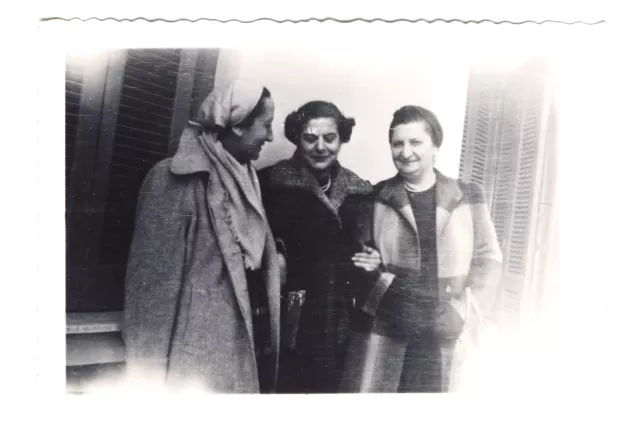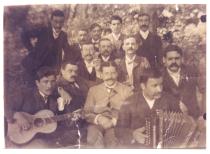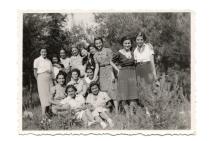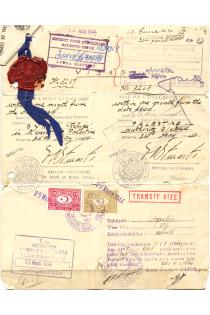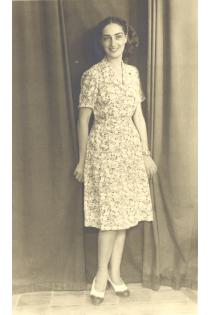Mitsa Abravanel with her sister and a friend
Here on the right side of the picture is my aunt Mitza Rozengrad. She married my mother's brother Pepo Abravanel. Next to her is Lili Shaki and then Mme. Margaritis. The photo was taken in Thessaloniki in the 1930s.
Mme. Margaritis was aunt Mitsa's sister and a great piano player. She was married to Lori Margaritis, who was also a famous pianist.
Lili Shaki was a friend of both Aunt Mitza and Mme. Margaritis. She was a teacher, a school teacher I think but I am not sure since I met her much later, when she was living in Athens.
Aunt Mitsa was an extremely nice person. One of the first women that worked permanently and had her own salary and her own money. She was always ready to receive us at her house and we, my sister Matilde and I stayed with her after the war. But she was severe, she did not want to feel that she was serving anybody so she asked us to participate in the house chores. This was new for us since at our house, before the war we had house help permanently and doing chores was left to our good will. At Aunt Mitsa's house it was an obligation.
She was very correct, always very correct. After my uncle Pepo died she used to come to our house once a week and have lunch with us, and she was always pleasant. She always had something to talk about, she was sociable and since she was a piano teacher she was in contact with a lot of people and she always had something agreeable, pleasant to tell you, because she was pleasant herself and people loved her. And I loved her too, and I had a lot of respect for her because she was straight. She was always fair, she would never be unfair for any reason.
Once, as we were walking on the street a very young, maybe ten years old, boy came to greet her. She told me, ?This is a schoolmate of mine" and she told me that since she wanted to learn English in order to be able to talk with her grandchildren in America she had enrolled in an English class but the hours that were convenient for her were children hours so all her schoolmates were ten to twelve years old.
Aunt Mitsa died from cancer. When she went to the hospital to be operated I went with her and I stayed with her for two days, and she appreciated it. And later, when she was sick again I went to the hospital every morning to give her medicine. I went every day there to give her medicine, and when her sister came from Athens she still would not take it but from me. And when her daughter Rena came from America she asked me, ?Am I so sick that she came?? Till the end I was there for her and she was there for me.
